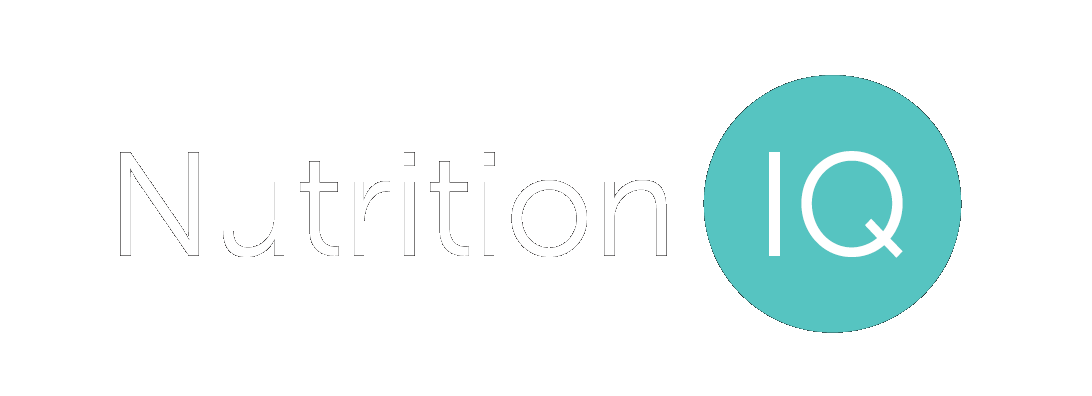Workplace Wellness and Weight Loss Competitions
June 12, 2019

Weight loss competitions or biggest loser-style competitions can be popular in the workplace. I’ve seen them pop up at various times during the year, but they tend to be very popular in the new year when everyone is gung-ho about their new year's resolutions.
When you are thinking about a wellness challenge at work, typically the end goal is to improve health. However, despite starting off with the best intentions, wellness competitions often don’t achieve this goal. If you’ve run a wellness challenge in the past, reflect on how it went and consider:
- What was your participation rate?
- Was there a diverse group who participated?
- Were participants engaged the whole time?
- Were people more or less connected to one another at the end?
When you run a weight-loss competition at work for the purpose of improving health, you are making an assumption that weight is an indicator of health (studies show that it’s not). You are also assuming that people who are living in larger bodies are less healthy than people who are living in smaller bodies. In reality, research shows that you can be healthy regardless of your body’s shape or size and that intentional weight loss is more often than not, short-term and can lead to increased weight gain in the future. Not only that, but weight-loss competitions by nature prioritize weight loss over health.
Let’s consider an extreme example. Jane Doe is participating in this year’s Biggest Loser competition and she really wants to win. In order to ensure that she wins, for the entire four-week competition, Jane eats nothing but meal-replacement drinks and she purposefully fasts before each weekly weigh in. She ends up losing 30 lbs and wins the competition, BUT would you consider Jane to be healthier at the end of the competition? Has this taught Jane anything about good health? What is likely to happen to Jane now that she’s no longer drinking only meal-replacement drinks?
Running a wellness campaign at work can be great, but it’s important to take the time to think about:
Will this campaign create an inclusive environment for all employees?
If you have been working on improving your workplace culture and employee engagement, it’s so important to consider whether or not you are creating an inclusive environment for your employees. You don’t want to introduce anything that will alienate people or cause unnecessary animosity. A workplace runs better when your employees work together. So consider who is participating. If you’re running a fitness challenge, is there a diversity in your participants or is this just a competition between your fittest employees?
Will the campaign promote overall health?
Extreme dieting and rapid weight loss are not healthy. Not only is it ineffective in the long-run, but it can lead to increased risk of adverse health outcomes, body dissatisfaction, and poor mental health. It’s healthy behaviours (regardless of weight) that are going to contribute to long-term good health.
Is it flexible?
Improving one’s health is an ongoing journey and may look very different from one person to the next. When promoting wellness in the workplace, you need to consider that all your employees won’t have the same goals or concerns. Does your program allow for these differences?
If Not Weight, Then What?
So what are some better alternative to weight loss when running a wellness campaign? There are many options for you to incorporate health and wellness into your workplace that are both sustainable and inclusive. Here are a few tips for you to consider:
Tip 1: Promote Joyful Movement

Remember when I said that wellness may look different to different people, offering employees the opportunity to get out and move during the day may look very different across your employee population. Give people the flexibility to move in a way that feels good to them. Maybe allow employees an hour out of their day to get moving, or provide a health spending account that allows employees to subsidize activities that they enjoy.
Tip 2: Add Rather Than Subtract

Instead of focusing on weight loss and restriction, why not provide ways to incorporate new healthy items into the workday. For example, a campaign where employees try to add a new fruit or vegetable into their day or trying to increase how much water they’re drinking. If you’re running a multi-week campaign you can focus on adding foods of different colours each week. Maybe encourage employees to meet and talk about new ways they’ve incorporated these new items, what they liked, what they didn’t. Focus on discovery and being curious about new foods vs labelling good vs bad healthy vs unhealthy.
Tip 3: Provide learning opportunities

Providing opportunities for your employees to learn more about health and wellness from an expert is a great way to encourage health long-term. Consider a lunch-and-learn, webinars or courses that employees can complete, or even individual consults for more personalized help. Make sure to do your research to find an expert that aligns with your corporate culture and the messages that you want to send to employees.
Tip 4: Incentivize Wisely

Everyone likes prizes, myself included, but incentivizing wellness can backfire if not done correctly. Incentivizing based on outcomes can create unnecessary competition that creates a divide in the workplace which isn't great for your corporate culture. I also think that depending on how the incentive is awarded, it can actually reduce motivation if people feel like there's no way to win. Take for example Company ABC that decided to run a step challenge. It seemed like an easy way to get people moving, and whoever had the most steps at the end of the month was the winner. Unfortunately one of the employees at Company ABC was training for a marathon, so after the first week of the competition, that employee was far ahead of everyone else. Because of the huge gap, other employees didn’t feel like they had a chance of winning and actually stopped participating. If you are providing incentives based on outcomes, you need to be very mindful of the fact that your employees need to feel that there is a relatively even playing field if they put in the work.
If anything I think an introduction bundle for people participating, given at the beginning to help people get going (think a new water bottle for a hydration challenge or a gift card to a grocery store for a healthy eating challenge) would be the way to go. If you want to reward people throughout the challenge, I would recommend rewarding based on participation and engagement vs outcomes. Running a healthy eating challenge? Maybe host a healthy lunch for participants or make healthy snacks available. The goal here is to do it in a way that’s inclusive and makes sense for the challenge.
Tip 5: Get Feedback

Not sure where to start, why not ask your employees? Consider forming a wellness committee to help gather ideas and feedback. The more diverse your wellness committee is, the better. This will help generate multiple points of view and can improve engagement if people feel they are being represented.
The Bottom Line
Don’t confuse weight with wellness. The two have nothing to do with one another. Focus on healthy behaviours, sustainable changes, and most of all, inclusivity. Need some help? Nutrition IQ focuses on health and wellness in the workplace. We are happy to chat with you about specific ways that your company can improve the health of your people based on your needs and employee population. Check out our at work offerings here: https://nutritioniq.ca/pages/nutrition-iq-work or feel free to email us at info@nutritioniq.ca
Leave a comment
Comments will be approved before showing up.
Also in Nutrition News

Starbucks and Tim Hortons are selling high-protein lattes: Do you need them?
September 17, 2025
Starbucks and Tim Hortons are jumping on the high-protein trend, but do you need a high-protein coffee?

Bone Health in Women After 40: How to Keep Your Bones Strong for Life
April 11, 2025
Wondering how to keep your bones strong as you age? This blog breaks down how menopause, nutrition, and even weight loss medications like Ozempic impact your bone health—and what you can do to protect it.

Don't Make These Four Mistakes Planning your New Year's Resolutions
December 16, 2024
+Recent Articles
-
Starbucks and Tim Hortons are selling high-protein lattes: Do you need them?
September 17, 2025
-
Bone Health in Women After 40: How to Keep Your Bones Strong for Life
April 11, 2025
-
Don't Make These Four Mistakes Planning your New Year's Resolutions
December 16, 2024
-
The #1 Eating Mistake You May Be Making Over the Holidays
December 11, 2024
-
A Holistic Approach: Managing Endometriosis Symptoms through Nutrition and Lifestyle
November 27, 2024
-
Nourish to Flourish: Nutrition and Lifestyle Strategies for Managing PCOS
September 30, 2024
-
Thriving Through Perimenopause: Simple Nutrition and Lifestyle Changes for Symptom Relief
July 22, 2024
-
Beat Period Symptoms: Nutrition and Lifestyles Hacks for a Better Period
July 08, 2024
-
Sun, Sand, & Self-Esteem: Navigating Body Image in the Summer
June 21, 2024
-
Embracing Easter Treats Without Guilt: A Guide to Intuitive Eating this Easter
March 27, 2024
Sign up to get nutrition tips and tricks directly to your Inbox, as well as the latest on any promotions, webinars, or services being offered by Nutrition IQ.
© 2025 Nutrition IQ.


